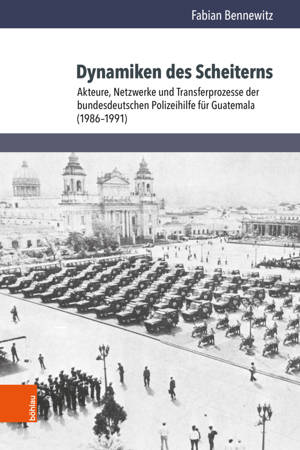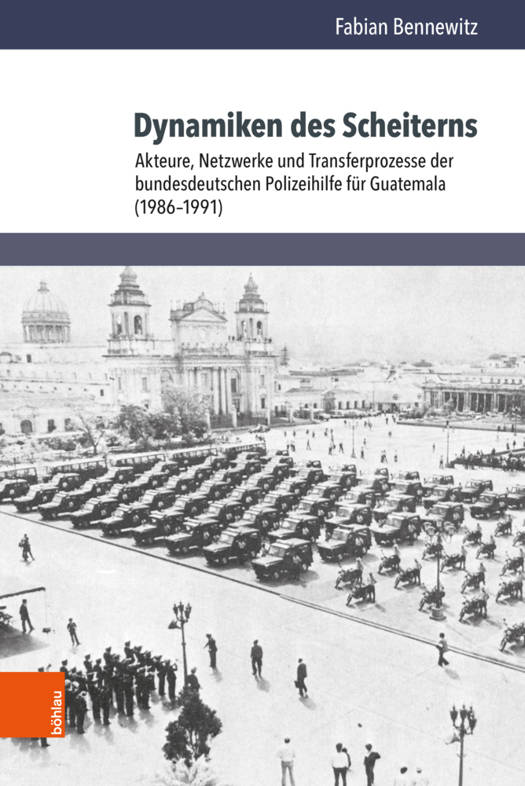
Bedankt voor het vertrouwen het afgelopen jaar! Om jou te bedanken bieden we GRATIS verzending (in België) aan op alles gedurende de hele maand januari.
- Afhalen na 1 uur in een winkel met voorraad
- In januari gratis thuislevering in België
- Ruim aanbod met 7 miljoen producten
Bedankt voor het vertrouwen het afgelopen jaar! Om jou te bedanken bieden we GRATIS verzending (in België) aan op alles gedurende de hele maand januari.
- Afhalen na 1 uur in een winkel met voorraad
- In januari gratis thuislevering in België
- Ruim aanbod met 7 miljoen producten
Zoeken
Dynamiken Des Scheiterns
Akteure, Netzwerke Und Transferprozesse Der Bundesdeutschen Polizeihilfe Fur Guatemala (1986-1991)
Fabian Bennewitz
€ 137,45
+ 274 punten
Omschrijving
In 1986, in the course of Guatemala's democratic opening, the Federal Republic of Germany launched an extensive police assistance project to help reform the country's notorious police forces. Equipment deliveries and training programs were intended to move the Guatemalan police forces towards democratic policing principles and rule of law standards. By 1991, however, non of these goals had been achieved. After continuous human rights violations by Guatemala security forces, the cooperation was terminated. Drawing on interviews and new archival sources, Fabian Bennewitz analyzes the negotiation processes that ultimately led to the failure of the project's transfer efforts. By reconstructing the highly contingent unfolding of the cooperation from a transnational and relational perspective, the author offers insights into the often elusive dynamics of development projects.
Specificaties
Betrokkenen
- Auteur(s):
- Uitgeverij:
Inhoud
- Aantal bladzijden:
- 385
- Taal:
- Duits
- Reeks:
- Reeksnummer:
- nr. 50
Eigenschappen
- Productcode (EAN):
- 9783412528966
- Verschijningsdatum:
- 4/12/2023
- Uitvoering:
- Hardcover
- Formaat:
- Genaaid
- Afmetingen:
- 155 mm x 231 mm
- Gewicht:
- 603 g

Alleen bij Standaard Boekhandel
+ 274 punten op je klantenkaart van Standaard Boekhandel
Beoordelingen
We publiceren alleen reviews die voldoen aan de voorwaarden voor reviews. Bekijk onze voorwaarden voor reviews.









